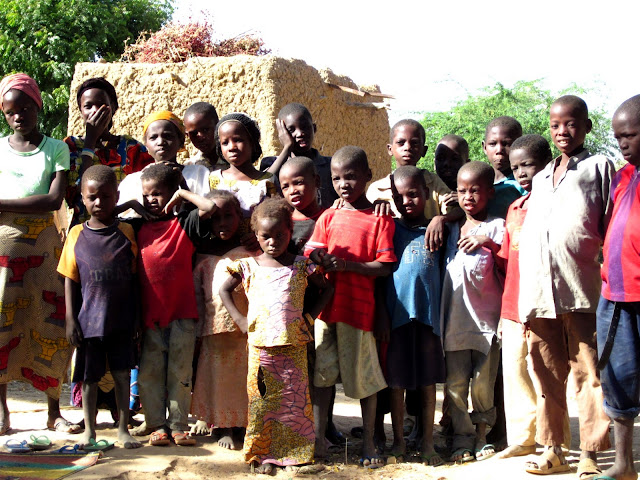During my very first visit to Niger, this past November, a fellow PC(USA) traveler leaned over to me and commented, there’s something about these villages that makes you feel like you’re in a Bible movie. It was a very accurate remark. Perhaps it was the numerous donkey carts, the sandy arid land, the flowing gowns on both men and women, or the mud brick houses made using centuries-old techniques -- the list could go on and on. It was just very easy to imagine Jesus walking down some of these streets.
Niger is constantly ranked near the bottom of countries on the United Nations Human Development Index. In 2010, it was ranked 167 out of 169; only Zimbabwe and Congo were lower. But despite the deep and widespread poverty, there was something incredibly pleasant about the country, and I’ve been struggling to name what it is.
In all honesty, I don’t like when I hear affluent Westerners use the description, “the people are poor, but they’re happy.” I think it’s a way for those of us who are rich to assuage our guilt. Yes, they have no electricity, no running water, no health care, no money for schooling … but they’re happy. By telling ourselves this, does it allow us to go back home and feel not so bad about the incredible (can one even call it sinful?) disparity in wealth and well-being?
The PC(USA) partner in Niger, the Eglise Evangelique de la Republique du Niger (EERN), is a small church, with only about 100 congregations and 10,000 members, in a country that is more than 95% Muslim. But I am told there is an openness in Niger to the gospel message of Jesus Christ. Over the past several years, the church has placed an emphasis on its schools, which allow for Christian evangelism and church growth, as well as service to the larger society.
Since this was my first visit, let me tell some more about Niger in photos.
The chapel and students at the Dogon Gao Bible School, which trains leaders for the EERN. Tom Johnson, a mission worker with the Reformed Church in America, has been posted to Dogon Gao for a number of years now.
One of the EERN primary schools. These primary schools are considered some of the best in the country, and many Muslim families strive to send their children to them. About half of the student body is Christian and half Muslim.
Some of the girls at the primary school. I love the colorful clothing!
Another one of the EERN schools, whose classes meet in straw huts. The church is struggling to raise money to put up concrete block structures, as is mandated by Nigerien law.
One well among many constructed with funds from the Presbyterian Hunger Program. These wells have enabled village residents to plant gardens, which give them year round access to vegetables. The residents also relayed news of improved health, especially among children, because of access to clean water.
Threshing millet, first by beating it with a wooden pestle on the hardened ground, and then by pouring it from a calabash at shoulder height to one on the ground, which allows the wind to blow away the chaff. This is a job usually performed by adolescent girls and young women. Millet is the staple grain of Niger.
Children are very much required to help with household tasks, including working on farms and tending livestock.
Attending a village meeting with Africa Area Coordinator Debbie Braaskma, and Mission Co-Worker Christi Boyd, who lives in Cameroon.
This village now has access to clean water, due to a Presbyterian Hunger Program grant.
These are the children in the village who attend school. It must have been far less than 25% of the school-age children. Very few girls are sent to school.








